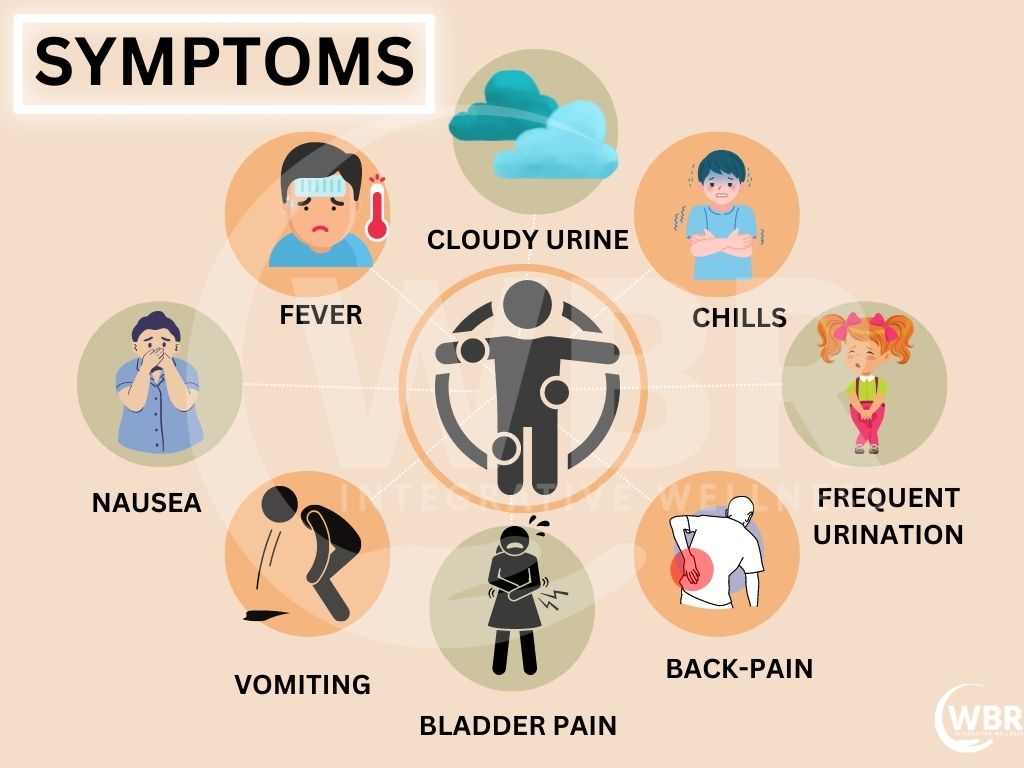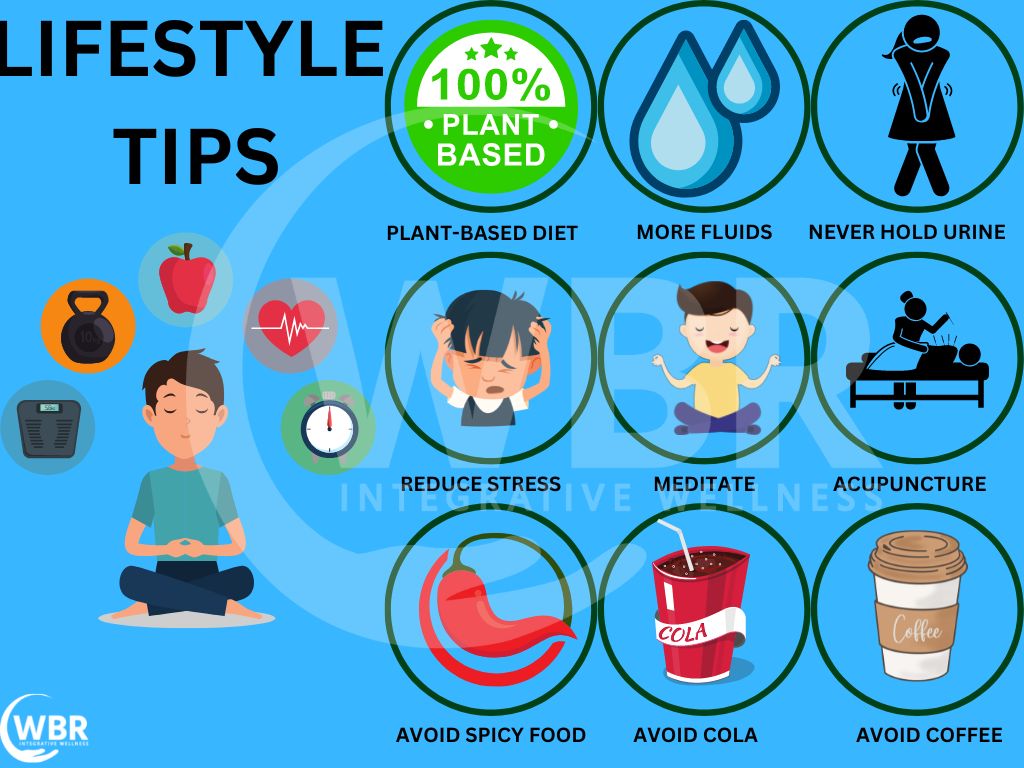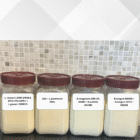How to Prevent and Control UTI Naturally
UTI, or Urinary tract infection, is known as one of the most common bacterial infections. It is estimated that more than 150 million people suffer from UTIs each year. E Coli is one of most common pathogenic bacteria that commonly cause UTIs. However, other types of infectious bacteria may be implicated.
What is UTI?
UTI can show its affect any part of the urinary system, including the bladder, urethra ureters, and Kidneys. But in most cases, the condition starts in the lower urinary tract, urethra, and bladder. However, it can also involve ureters and Kidneys in the upper tract. The fungus can also cause UTIs but in rare cases. Viral UTI is also the most common form of infection in humans.
Types of UTI
UTIs can be broadly classified into two types depending on the infected part. They are
Lower Tract UTI: In the lower tract, UTI urethra and bladder get affected.
- Cystitis: In this, the bladder gets infected. Bacteria move up to the urethra under the bladder.
- Urethritis: When bacteria reach the urethra and infect it, it is called urethritis.
Upper Tract UTI: In the upper track, UTI Kidneys get affected. Unfortunately, if the bacteria spreads from the Kidneys to the blood, the condition is known as urosepsis and can be life-threatening.
- Pyelonephritis: If the kidney gets infected, the condition is called Pyelonephritis. It usually happens when urine flows backward from the bladder to the kidney. Moreover, infection from the bloodstream reaching the kidney can also infect it.
What is Recurrent UTI?
Some people get UTIs again and again, known as recurrent UTIs. If they are not taken care of, it can lead to kidney damage. It is vital to recognize symptoms.
Note: Women have a shorter urethra. It shortens the distance for microorganisms to reach the bladder. Hence women are prone to get UTIs more than men.
UTI Signs and Symptoms
UTI symptoms depend on their type
Lower Tract UTI Symptoms
- Burning sensation while urinating
- Increase in the frequency of urination
- Increase in the urgency
- Blood in the urine
- Cloudy urine
- Urine which looks like tea
- Strong odour
- Pelvic pain in women
- Rectal pain in men
Upper Tract UTI Symptoms
- Tenderness and pain in the sides
- Pain in the upper back
- Fever
- Chills
- Vomiting
- Nausea

UTI Causes
Anything that irritates the urinary tract or reduces bladder emptying leads to UTI. Several factors can put you in the risk zone of getting a UTI, such as
- Aging
- Sedentary life
- Prolonged bed rest
- Kidney stones
- History of UTI
- Obstructions in the urinary tract such as
- Enlarged prostate
- Kidney stones
- Some cancer forms
- Prolonged usage of urinary catheters can make it easy for bacteria to get into the bladder.
- Pregnancy
- Diabetes
- The abnormal urinary structure develops from birth
- Weak immune system
Blood Sugar: It is essential to control blood sugar to prevent and control UTIs. High levels of sugar in the body will interfere with the immune system, which leads to a proliferation of bacteria.
How to Prevent and Control UTIs Naturally
UTIs can be prevented and controlled with the help of diet and lifestyle changes. Can Diet Affect the Chances of Getting a UTI? It is relatively easy to control or avoid UTIs with the help of a balanced diet. Diet often plays a vital role in improving your overall health. Not only food but also beverages show a heavy influence on bladder health. Research shows that specific dietary patterns can help to protect against UTIs.
Nutrition
We must always take a good diet high in fruits, vegetables, whole grains, and healthy fats. Food has a direct impact on frequent UTIs.
Plant-Based Diet
Plant-based diet makes urine less acidic and more neutral. They do not contain any food reservoirs for the transmission of bacteria. Hence the chances of bacterial growth are reduced.
Garlic and Onion
Garlic and onion can help to fight UTIs because of their antimicrobial activity. They can kill bacteria and other microorganisms. It helps to prevent microorganisms from growing in the body.
Supplements
Some supplements help to treat UTIs and reduce recurrence. They also help to give relief from the symptoms. Here we discuss some of the most critical supplements.
Probiotics
Probiotics help to improve overall immunity. Eating probiotic food can help to defend against UTIs. Research proves that some probiotic strains have been related to curing UTIs. So you must include fermented food such as curd to prevent and control UTIs. L. Rhamnosus, L. Plantarum and L. Reuteri are the best-studied species of probiotics. Also adding spore based probiotics like Bacillus Coagulans, Bacillus Subtilis can prevent recurrence. You must never forget to identify products having a specific species.
Food High in Vitamin C
During UTI, urine has a pH slightly higher than usual. In other words, we can say that urine becomes more alkaline. Studies show that there is a correlation between intake of Vitamin C and a lower risk of UTI. In the case of prevention, eating food rich in vitamin C helps keep urine pH more balanced. It helps to prevent the atmosphere where bacteria attack and multiply quickly. . Hence one can take 100 mg daily. Always remember higher doses can lead to diarrhoea and GI upset. You should avoid Vitamin C supplements in the form of ascorbic acid.
D Mannose
D Mannose is a simple sugar and occurs naturally in the body. It has been connected to preventing UTIs when taken for several months. When it passes through the urinary tract, it sticks to E Coli and eliminates the bacteria through urine. The optimal intake of d mannose is not precise. Hence one can consider 2 grams daily for prevention. Higher doses can lead to loose stools and abdominal bloating. Cranberry metabolites can impair E Coli adhesion and remove bacteria.
Note: D-mannose with Uva Ursi is highly recommended. Drinking lot of clean water is essential to stay hydrated and flush out the microbes from the body. It is improving impunity function that helps to arrest bacterial overgrowth before it becomes our concern.
Focus on Fluids and Food
How much fluid we should take to influence UTIs?
Too Much Fluid
A good amount of fluid is necessary to urinate more often and flesh out the infection. However, it is necessary to drink slowly. If you drink too much quickly, this can overwhelm your bladder. Unfortunately, this increases discomfort in UTIs when you need more fluid and never take it all at once. Drinking in smaller amounts throughout the day and between meals is good.
- Drinking more fluids in the morning and afternoon rather than at night is good.
- Always remember that fluids also come from food such as fruit juices and soup.
Too Little Fluid
If you drink less fluid, body waste gets accumulated in your urine. Highly concentrated urine is one of the vital factors responsible for UTIs. Here urine becomes dark yellow and has a strong odour. It can irritate your bladder and increase the urinating frequency.
Bladder Irritants
Some kinds of foods and beverages can irritate your bladder. Here is a list
- Carbonated drinks
- Coffee
- Tea
- Some acidic fruits such as orange grapefruit lemons
- Spicy food
- Tomato based products
- Chocolate
Try to avoid these irritants so that your symptoms will improve.
Botanicals
Some botanicals help to give relief from UTI symptoms. They also help to treat UTIs. Here are some botanicals which might help you
Cranberry
Cranberries prevent bacteria from sticking to the urethra. It may be because they contain proanthocyanidins. You can take cranberry in the form of juice or supplements. While taking juice, remember not to add extra calories.
Uva Ursi
Uva Ursi is sometimes used to treat UTIs and cystitis by reducing inflammation and fighting infection. However, it has hydroquinone, a component that can cause severe liver damage. Research shows that it works best when urine is alkaline since acid destroys the antibacterial effect. It works best at the first sign of infection. It should be taken only for shorter periods, not longer than five days. Uva Ursi can show drug reactions with lithium, nonsteroidal anti-inflammatory drugs, corticosteroids, iron, and drugs that make the urine more acidic. It is suggested to take 3 grams of dried herb daily.
Berberine
Berberine is a vital drug against bacteria. It also helps to combat infections by preventing the bacteria from adhering to the host cell. These suggest that berberine has a potential role in treating UTIs. Berberine is not safe to use in pregnancy and for infants because of the risk of Kernicterus. Berberine can also potentially affect the cytochrome P450 system and subsequently other substance’s serum levels.
Goldenseal
Goldenseal is a herbal antibiotic. It is used traditionally to treat several respiratory, digestive, and urinary tract infections and inflammation.
Other Therapies to Consider
Behavioural Changes
Studies prove that some behaviours increase the risk of UTIs. These include tight clothing, holding urine for extended periods, and using irritants such as bubble baths, douche, and other products. However, no research states that these cause UTIs. But it is better to address them to reduce the risk of infection. Pelvic floor training can be beneficial, especially for people with dysfunctional voiding, as this helps to improve muscle relaxation.
Acupuncture
Women with a history of UTIs have significantly improved with regular acupuncture. However, it is a slow process; you need at least four weeks to 6 months to see good results.
Mind-Body Skills
There are no specific mind-body skills to prevent or treat UTIs. But these techniques help to improve overall health, including your immune system. Along with other foundations of health such as nutrition, adequate sleep physical activity, the skills are also needed to stay in optimal health. It may be yoga or other strategies that help to limit susceptibility to the infectious process.
Biofeedback
Women with dysfunctional voiding found pelvic floor therapy helpful in decreasing frequent UTIs. Dysfunctional voiding can be defined as an increased external sphincter activity during voluntary voiding. People with neurological deficits face this problem. We must note that relaxation training with biofeedback benefits those with dysfunctional voiding with incomplete bladder emptying.
Children with such problems will also respond to these techniques very well. Moreover, biofeedback has utility in treating dysfunctional elimination syndrome, a typical cause of childhood UTI. Pelvic floor muscle retraining along with diaphragmatic breathing shows a lot of effect in treating children with UTIs.
Important Facts
- Give preference to a plant-based diet, especially which is rich in garlic and onions.
- Avoid all possible bladder irritants such as caffeine and simple sugars
- Take adequate fluids.
- Keep monitoring your stress.
- Never hold urine
- Avoid constipation
- Time to change birth control methods if you are frequently getting affected by UTI
- Urination after every intercourse.
- Gut balance is directly related to UTIs, especially recurrent UTIs.
- E-coli causes most UTIs. This bacteria has tiny projections that help them adhere to the walls causing infection.
- We must know that most interstitial cystitis patients with gastrointestinal symptoms must have had abnormal lactulose breath tests. These symptoms directly suggest SIBO small intestinal bacterial overgrowth.

Conclusion:
UTI is often considered a superficial infection. Unfortunately, it has become an enormous burden for millions of individuals. Women are prone to UTIs because of the shorter urethra. Recurrent infections are likely to be part that is attributable to the intracellular bacterial reservoirs. There is ongoing development for a new antimicrobial approach to treating UTIs.
References:
https://www.ncbi.nlm.nih.gov/pmc/articles/PMC6992707/
https://pubmed.ncbi.nlm.nih.gov/31988085/








